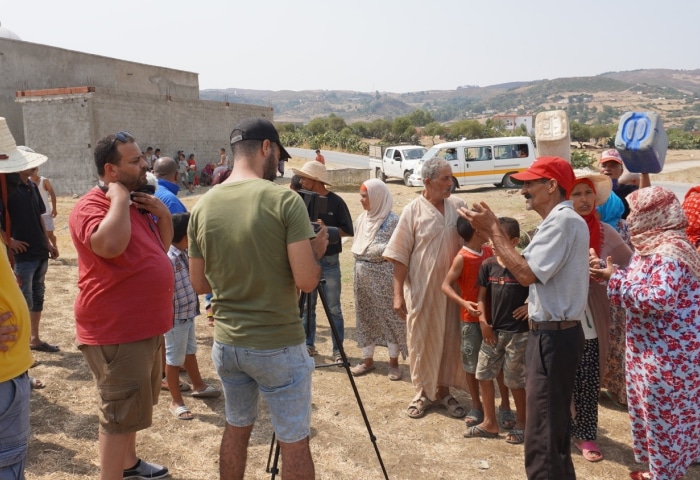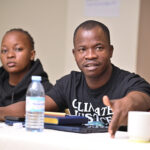This article was published more than 3 years ago.
With the Fund’s support, three grassroots organizations are standing up for their communities’ rights, tackling climate change and protecting the planet.

Solving the climate crisis requires action from governments, corporations, and individuals alike. But to succeed, solutions must be based in climate justice—lasting reforms that are informed by and protect the communities most impacted by the effects of climate change.
That’s why we invest in community-led groups and initiatives that help protect both the planet and the people living on the front lines of climate change. Here are three ground-up climate action efforts made possible by the Fund.
Promoting Sustainability with Girl Power
In Guinea, independent and small-scale fishers are a critical part of the local economy and culture. But their livelihoods are being threatened by rising sea temperatures and pollution. It’s estimated that West African fisheries’ catches could plummet by up to 26 percent by 2050, potentially devastating coastal communities and families as well as those inland who rely on fish for nutritional protein.
Women of Africa (WAFRICA) is a community-based NGO dedicated to realizing gender equality by increasing girls’ access to education and economic opportunity. With the Fund’s support, WAFRICA has launched a project training girls and young women on sustainable fishing methods. Twelve young women have been selected as “climate ambassadors” to bring this education to coastal communities and other youth. One of the ambassadors, Aissatou Sassa Baldé, was chosen to attend the UN’s 2021 Climate Change Conference (COP26) in Glasgow, Scotland, where she defended and exposed the climate change issues facing her country. She also spoke powerfully about the importance of collective action across the international community to help Guinea mitigate the effects of climate change on coastal areas and, most critically, for people living in affected fishing communities.
Making Access to Water a Legal Right
In Tunisia, access to water is not so much a human right as a ticking time bomb. The availability of water varies greatly by region. Wealthier coastal cities enjoy better infrastructure and fewer service cuts. Meanwhile, rural communities often rely on overburdened wells miles from their homes or farms. They also endure inconsistent rainfall that is becoming more irregular because of climate change. And instead of protecting all people’s right to water, a new water code bill currently with the Tunisian Parliament opens the door for private companies to profit off the water they provide to communities at risk of poverty.
Nomad08, a group of Tunisian activists, advocates for people’s access to water to curb the effects of climate change and promote communities’ health, economic well-being, and food security. Our funding helps Nomad08 mobilize communities to document violations around access to water and track how water scarcity affects their crops, lives, and local environment, forming a collective case for more sustainable water solutions. These insights have informed Nomad08’s proposed alternative water code to improve water quality and access without damaging the environment or commodifying a basic human right. In July 2021, the group succeeded in delaying the original bill to allow critical space for further debate—the first step toward a better informed process.
Shifting Power to Protect the Planet
Land managed by Indigenous communities has 50 percent less deforestation. Yet Indigenous peoples’ rights and voices continue to be marginalized. The Maya Ch’orti’, who live in the mountains of southeastern Guatemala, are one striking example. The land where they’ve lived for three centuries is home to critical forests and water sources. However, their marginalized status in society has made it easy for corrupt authorities and local landowners to usurp their land for environmentally damaging ventures like palm oil and sugar production.
That injustice is what motivates the Coordinator of Associations and Communities for Holistic Ch’orti’ Mayan Development (COMUNDICH), a grassroots organization of Ch’orti’ activists. They work to reclaim their ancestral lands and boost their economic and social status. Their successes shifting power and land back to their communities has come at a price: COMUNDICH activists are frequent targeted with smear campaigns and even physical threats to their safety. But they refuse to back down. The Fund has proudly supported their work for 14 years, giving COMUNDICH the general support and emergency funding they need to safeguard their land—and defend the Ch’orti’ people and their environment.


